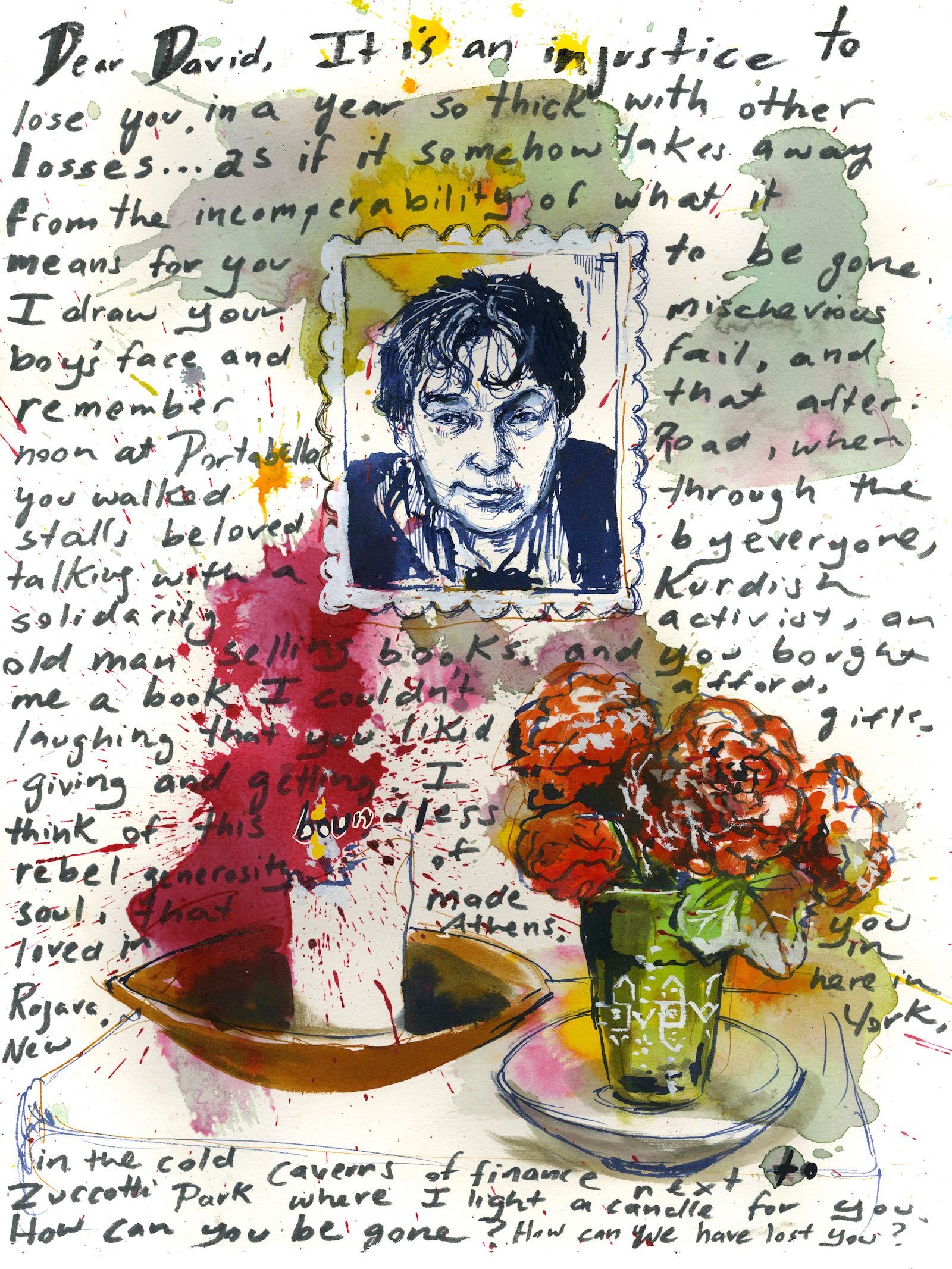David Graeber, the anthropologist and activist, died aged fifty-nine on September 2, 2020. The New York Review, to which he began contributing last year, is collecting tributes from his friends and colleagues.
Astra Taylor, Molly Crabapple, Marshall Sahlins, Beka Economopoulos, and Melissa Flashman, et al., September 5, 2020
I was supposed to talk to David this past week, the beginning of September, and record a conversation for this magazine. We were going to reflect on a few recurring themes of our friendship: the still-evolving legacy of Occupy Wall Street, the politics of debt (especially given the current economic calamity), how leftists should engage with and push beyond electoral politics, and the prospects of small-d democracy. The conversation was something I’d been looking forward to and meaning to arrange for months, but the pandemic gave me plenty of reasons to delay. And delay I did until last week, the end of August, when David and I finally decided to set a date. He told me he was going to Venice, and that he’d be there until September 7, but that we’d make time. It turned out to be a trip from which he would never return. After sharing some lines over text message from a piece he was writing for this publication about the upcoming election, his last and final note to me read: “No idea of time, time is being reinvented.”
Looking through my emails and texts from David over the last decade, I’m struck by how instantaneously we became friends. A single coffee in the West Village in 2009 or so was all it took. We knew lots of people in common, so there was a sense we were part of the same extended community, but that was also just how David operated. There was an openness about him, a willingness to let people in and give strangers a chance. Given how knowledgeable and prolific he was, it’s clear David spent a lot of time engaged in the solitary activities of reading and writing. But he was also wonderfully gregarious—he always seemed up for a phone call to check in, a ramble through an antique market, or a night on the town to talk shop or gossip. For some reason I keep thinking of David on the day I visited with him in London in 2014, when I was on tour playing with my partner’s band, Neutral Milk Hotel. He dressed up for the show, in a long jacket, with these ridiculous colorful John Lennon glasses that made everyone laugh. He was a fun person, and his mischievousness suffused everything he did, including his writing and his activism.
David changed my life, and he did it without my realizing it. In August 2011 he tried to get me to go to the planning meetings of what would become Occupy Wall Street. I shrugged it off, but promised to come to the first day of the protest. I did. I remember how pleased he seemed that afternoon, like a radical maître d’ going around welcoming people, checking in on our progress as we held the first assemblies. He didn’t push me into the movement, but he kept opening doors that I kept walking through, steadily becoming more deeply involved and invested. Before long, he had roped me into to an initiative that would be known as “Strike Debt.” One of our opening salvos was a propaganda video featuring a dozen of our friends in balaclavas dancing around a burning trashcan igniting their debt notices; David can be spotted amongst the throng and wrote the voice-over. Those were the early days of a project we called the Rolling Jubilee—David named the effort—that bought portfolios of debt in order to abolish them, erasing tens of millions of dollars overdue medical bills and payday loans belonging to tens of thousands of people. The group also collaboratively wrote the Debt Resistors’ Operations Manual, a radical financial guidebook, and gave away thousands of free copies at Occupy Wall Street’s one-year anniversary protest. David never lorded the fact that he had written Debt over his co-authors, many of whom had not written a single article; he understood that mastering five thousand years of history doesn’t mean you necessarily know the best tricks to evade bill collectors or the most effective ways to fight our modern-day form of mafia capitalism. We were all learning and experimenting together.


